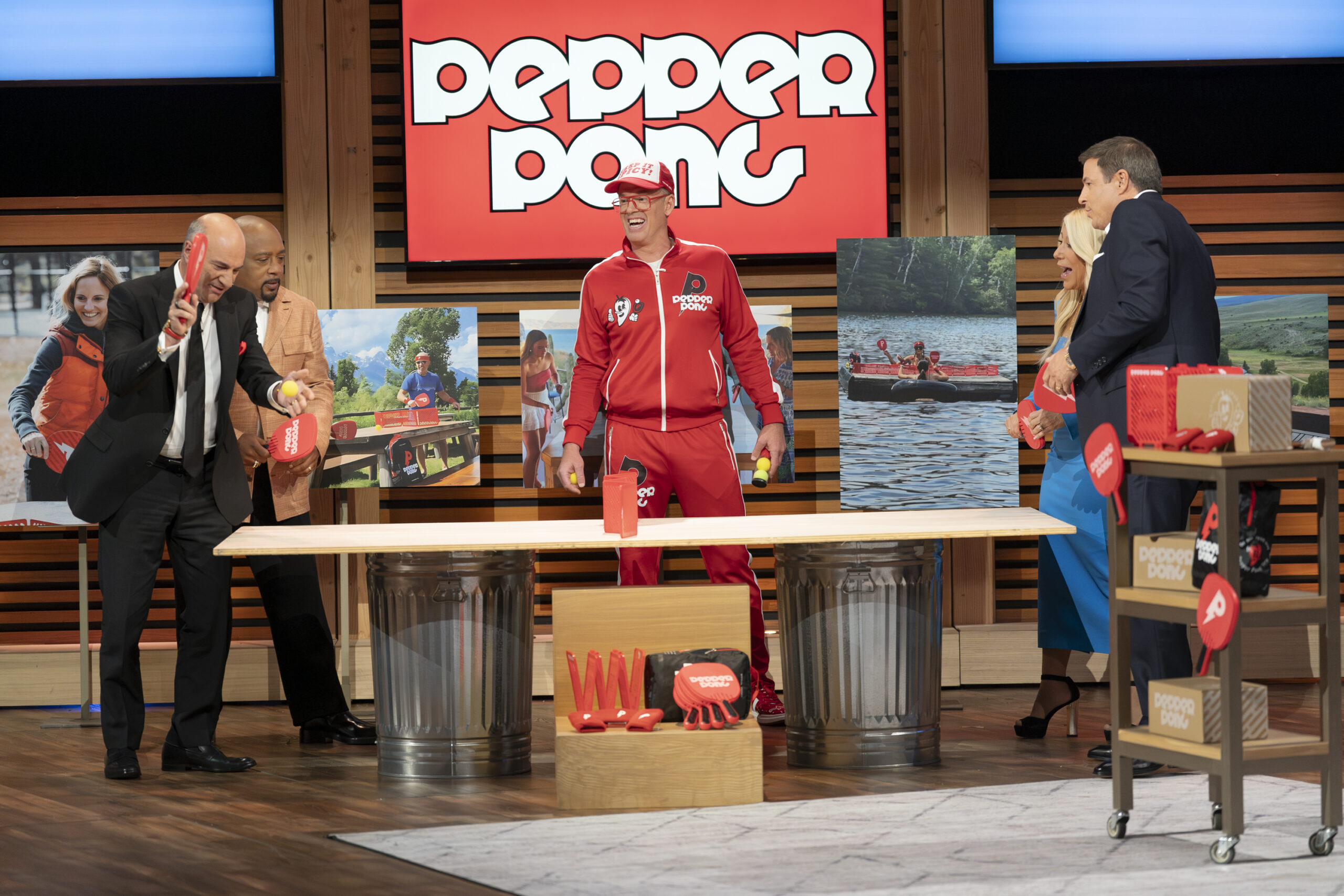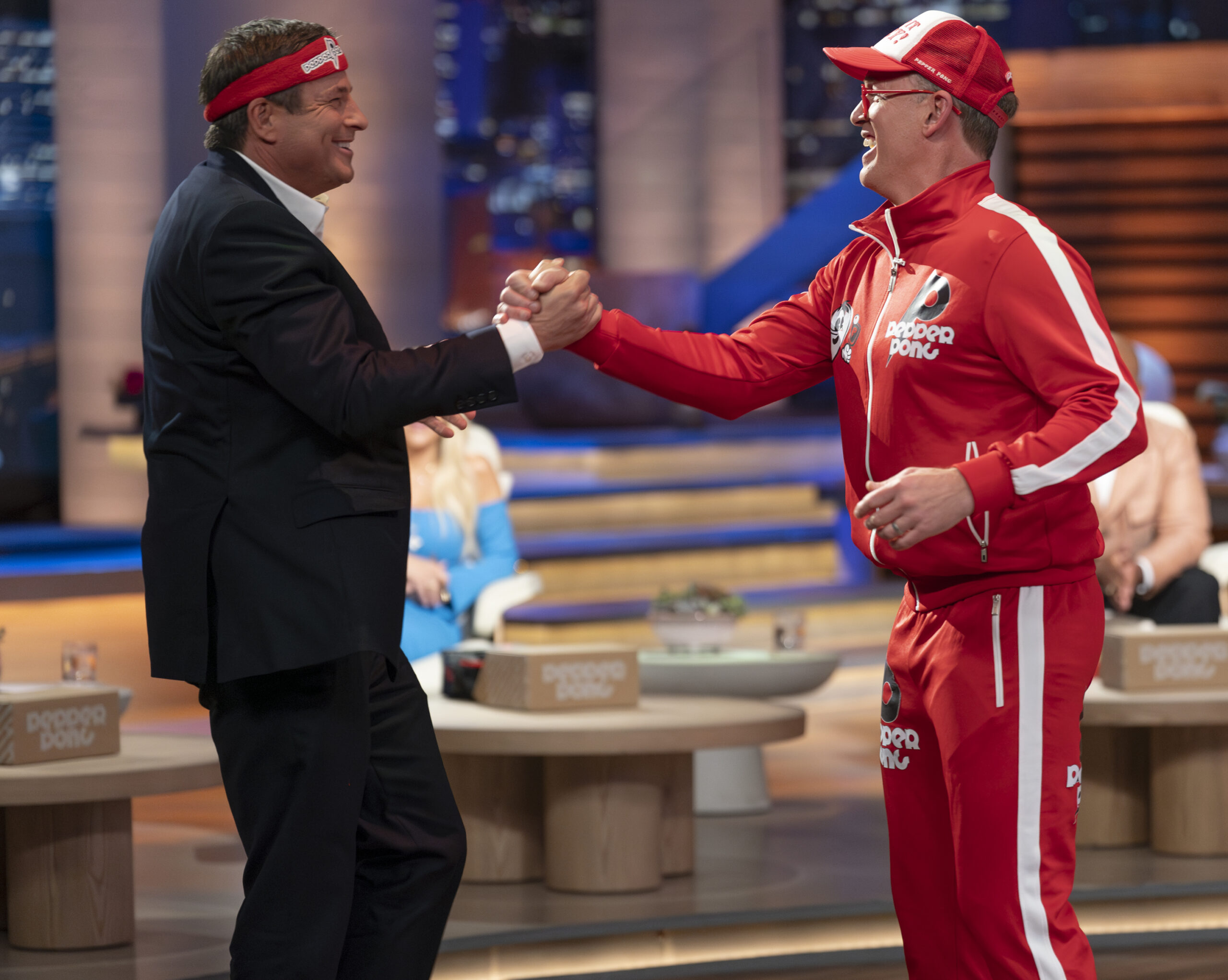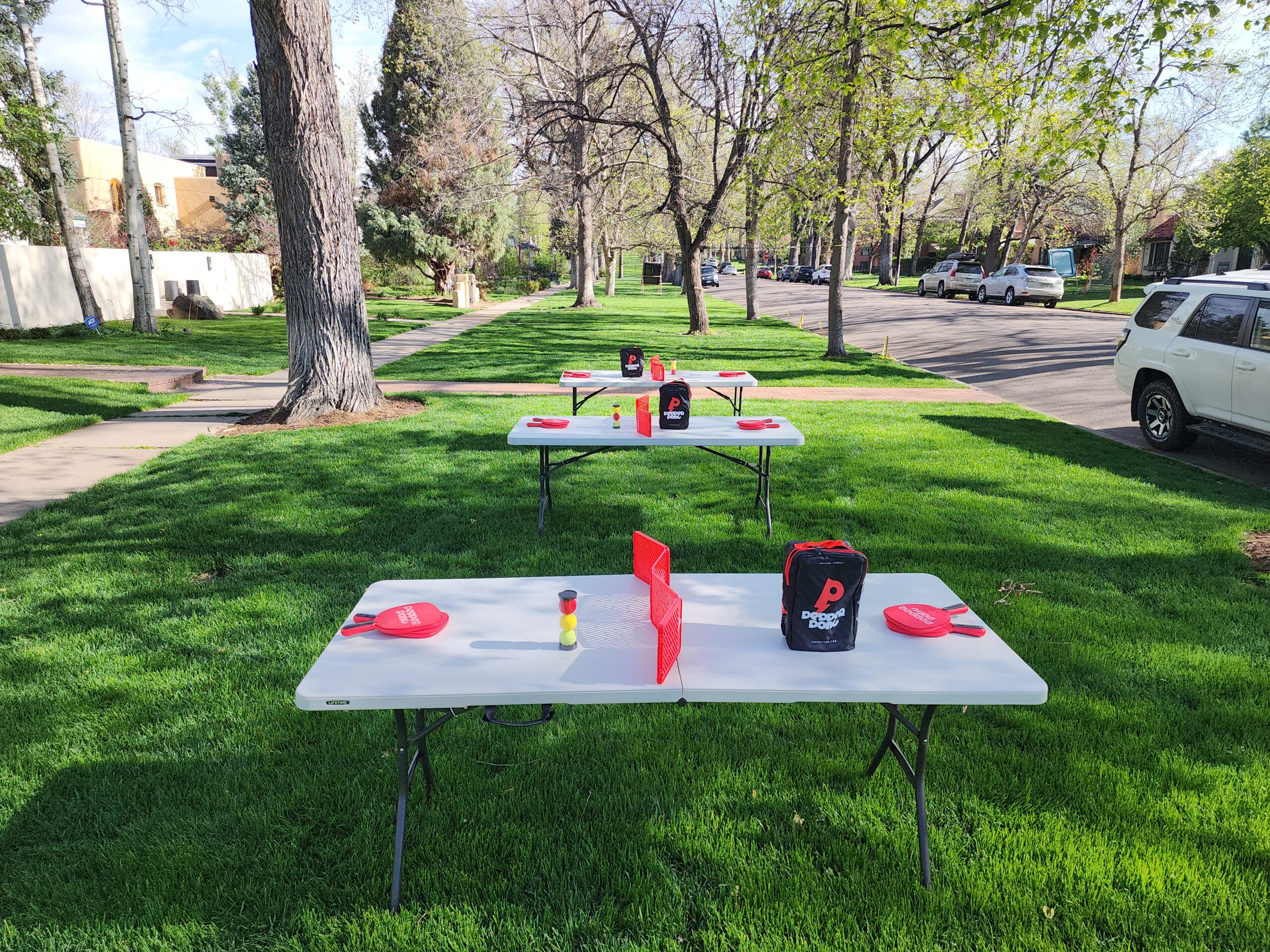
Pepper Pong founder Tom Filippini interacts with the sharks of ABC’s “Shark Tank.” (Courtesy Disney/Christopher Willard)
Pepper Pong, a portable game that combines elements of pingpong and pickleball, had done roughly $350,000 in sales as of last Friday afternoon, according to founder Tom Filippini.
Twenty-four hours later, that figure had more than doubled — thanks to the company’s appearance that evening on ABC’s “Shark Tank.”
“They were buying the connection more than the game,” he said. “You’re not giving a product. You’re giving a story about bringing people together. People are hungry for that connection.”
Filippini pitched that story to the show’s “sharks,” talking about his struggles with alcoholism before getting sober in 2016.
“We’ve easily gotten over 1,000 emails basically thanking us for telling our story, not for creating our product or asking about their order,” he said of the post-show response. “The product is really just a conduit in what we’re trying to accomplish, which is to head off this epidemic of isolation.”
Filippini went on the show asking for $150,000 for a 10 percent stake in the company. He ultimately gave up 19 percent in exchange for an investment of that size from Todd Graves, founder of the Raising Cane’s fast food chain.
It’s Pepper Pong’s first outside investment. Filippini said he’s put around $500,000 of his own money into the venture.
Filippini noted that Graves is a paddle sports fan himself. He’s a part-owner of the Texas Ranchers, a professional pickleball team. And a Cane’s location built in collaboration with musician Post Malone has a pingpong track running along the walls of the restaurant.
“I think Todd and I are really well-aligned in our feeling that business should be fun and lighthearted,” he said. “We call him the ‘aw-shucks’ billionaire.’”

Pepper Pong founder shakes hands with Raising Cane’s founder Todd Graves after the two strike a deal on ABC’s “Shark Tank.” (Courtesy Disney/Christopher Willard)
Filippini moved to Denver in 1997 and worked in mergers and acquisition investment before founding the vacation club Exclusive Resorts with Brent and Brad Handler in 2002. He sold the company, now based in McGregor Square, in 2004, and went back to the investing industry in 2010.
In 2016, he started Aviation Innovation Holdings, a firm that invests in niche flight-industry companies. He spends nights and weekends, he said, on Pepper Pong.
A self-proclaimed “pingpong fanatic,” Filippini grew up outside of Chicago playing table tennis with his two brothers and dad in their basement.
“We’d play a lot and occasionally throw the rackets at each other and they’d break, so we’d be out of those for a while,” he said.
This forced them to tinker with equipment, and led to them finding Nerf Ping Pong, the toy-gun empire’s tabletop version of the game. The ball was not up to snuff, he said, so they would source their own.
Though they never found the perfect replacement, that idea became Pepper Pong decades later.
“What we realized around 20 years ago is if you could soften the ball and slow the pace, you could level the playing field and extend rallies,” Filippini said. “You basically welcome more people to play and compete and have fun.”
Pepper Pong retails on the company’s website for $70 a set, which includes four paddles, called “mullets,” and three foam balls, called “peppers.”
The mullet has a pingpong base that shapes into more of a pickleball paddle on top. The peppers, about 30 percent bigger than a pingpong ball, are called jalapeño, habanero and ghost. They ascend in density and playability, with jalapeño being a beginner ball and ghost serving as the most difficult. The weight allows for more control and an approachable pace, Filippini said.

Folding tables set up to play Pepper Pong. (Courtesy Pepper Pong)
Players can set up a “fence” — the game’s de facto net — anywhere from a car hood to Yeti cooler. This, he said, is a remedy to the space and equipment you need to play ping pong. The large table and speed that some people can hit the ball also makes a skill gap obvious, he said.
Pepper Pong aims to level the playing field, and though there have been other portable pingpong sets on the market for decades that have tried to do the same thing, Filippini didn’t mince words when reflecting on their efficiency.
“They’re a joke,” he said.
Walmart and other retailers have reached out since the show to ask about carrying the product, Fillippini said, but he’s planning to sell on the Pepper Pong website for now, to ensure a deliberate roll out.
“I was ready for that influx,” he said. “But we’re a zero full-time employee company, so we have to be very considerate about not biting off more than we can chew.”
Pepper Pong is manufactured at a facility in Macao, China. Filippini noted it is the same center that produces Spikeball, another portable yard game. He was introduced to its founder, Chris Ruder, early on in the venture, and Filippini has sought advice from him throughout.
Pepper Pong distributes out of a family-owned warehouse in Indiana. Filippini said he had to call on family and friends to help account for the massive order influx after the show.

